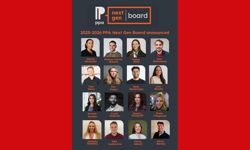Formed in late 2011 when private equity company Exponent acquired BBC Magazines and merged it with Magicalia (also owned by Exponent) and Bristol-based specialist publisher Origin, Immediate has since grown rapidly – organically, through merger and acquisition, and by successfully building new sustainable business models.
Clearly positioned as “the special interest content and platform company”, Immediate’s focus is on content brands with deep consumer engagement and monetising that engagement through transactions and ecommerce via the platform technologies it owns and operates. And this focus is serving it well.
Print and digital growth
Earlier this year, the company posted a combined print and digital circulation of 2,426,915 – up 1.8% year on year - with ABC-audited print circulation of 2,369,987 (up 1.5% year on year). Digital circulation was 56,928 – a year on year rise of 17.2%. Total subscriptions numbered 1.13m generating a 6% growth in subscription revenue to £49.7m. Overall, total revenue is now close to £200m compared with £130m four years ago.
“Growth from a profitability perspective is split almost half and half between organic and mergers and acquisitions,” says Bureau. “Broadly speaking, organic growth has developed along the lines we initially planned. We built a bigger digital business, and a bigger data and transactional business around brands like Radio Times. We’ve substantially grown our print business organically and that’s been a bedrock for success.”
Print growth has come by focusing on three strong sub-sectors of the printed magazine market - TV listings, children’s and special interest – each of which, at an industry level, has remained stable or grown over the past ten years and is still growing. “This has proven to be a stable cash generator to allow us to diversify the business,” Bureau explains. “And we’re possibly quite unique in the speed with which it has allowed us to grow.”
An important success factor has been Immediate’s focus on special interest content brands with a deeply engaged audience.
“Every media owner whatever platform they have must work out how relevant their brand or business really is. There are plenty of digital businesses that have gone from being the latest thing to being irrelevant,” he says. “You’ve got to ask and keep asking yourself: do you have a deep, entrenched and relevant relationship with your consumers?”
It is a question that also underpins Immediate’s mergers and acquisition strategy and its approach to diversification.
“If you have a deep relationship with the consumer through a brand, it gives you permission to look to offer a whole set of services and business models around it,” Bureau continues. For this reason, depth of engagement and potential to monetise it further is a critical consideration for the management team when deciding which external businesses to buy.
Hitched.co.uk, one of the UK’s leading wedding planning brands, and TV and online ecommerce platform Jewellery Maker are two businesses bought by Immediate over the past fourteen months.
“We were the biggest provider of consumer magazines for weddings – reaching 50% of women getting married at any one time. That’s a great place to be, but buying a digital planning and market place business has massively strengthened our proposition and the symbiosis that allows you to cross market and cross-promote has been very successful,” he explains.
“We bought Jewellery Maker, a TV business. By acquiring the number one craft portfolio from Future and putting it together with our number two portfolio, we were in a very strong position to reach crafters. Now we can sell them an ecommerce proposition through TV or video-based shopping.”
As with every special interest Immediate serves, the company asks itself two questions. First, where’s the opportunity? Then, does the company have the vision to unlock it? And jewellery making, especially, is a market with huge strategic potential. According to Immediate’s analysis, paid-for craft-related content in print and online is currently worth £50-60m in the UK and Immediate estimates its share of this market at 40%. But the business of craft-related transactions is valued at £3-4bn, with jewellery-making accounting for just £400m-worth of that.
“We all know the statistics around the number of acquisitions and mergers that fail and have a very clear view that while that is sometimes about strategy, normally it’s about people,” Bureau insists.
Focus on recruitment
Immediate’s total number of staff is now 1,350 – considerably more than the 750 it had at launch in 2011. Some 600 of today’s workforce have been newly hired into the business over the past four years during which time a further 350 have been brought in through acquisitions. ‘On boarding’ so great a number of people over so relatively short a period of time is undoubtedly a challenge but, in Bureau’s view, it is also in itself an engine for the company to keep evolving as it grows.
“Everything we do comes down to a basic philosophy that if you hire brilliant people and put them into a strategy which has coherence and relevance and give them the opportunity to express themselves and contribute, then success follows – it’s not rocket science,” he says. “But having the clarity of thought needed and trying to develop that isn’t simple and you have to be committed to it.”
Key to making this work is having a clear and focused development framework for hiring, integrating and developing staff.
“We train managers extensively in how we go about the process of hiring. Skills for the job are obviously important, but more so are individual competencies and cultural fit with the business,” Bureau explains. “If you want people to come in and be focused on performance, quality of work, collaboration, energy – which is really what you are trying to stimulate: the excitement of being in the organisation – then it’s all about what sort of person you are hiring.”
Ask, ‘what’s the secret of motivating people?’ and his response is simple: “The answer is hire motivated people. You can’t change a persona that lacks motivation into a motivated person if that’s not in their core, and that’s why for us, cultural fit is so important. Quite often, the cultures we buy won’t be the same as ours, but if they are close enough, we can do a lot to bring them in and make sure there is a close enough fit.”
The company also invests heavily in management and development and training and has so far put around 300 staff – most of its management cohort, with an emphasis on managers from newly acquired businesses - through its internal leadership programme, a 10-day off site course exploring how people learn, what motivates them, inter-personal interaction and different leadership models.
The aim, Bureau says, is to establish “a vernacular” around recruitment, people management and personal development that is clear, widely understood and simple to replicate as the company grows. As important as business vision, however, is cultivating a vision about how you work together internally and how you work with your market, he adds – something some other organisations don’t focus on as much as they should, he suggests.
Cultural norms
Having an agreed and widely understood vernacular ensures people coming into the business know how it would like them to operate and not operate. “But this needs to be done through self-regulation throughout the organisation which is why, as you get bigger, you must recommit to make sure that cultural development is at the heart of what you do,” says Bureau.
“Culture comes from the view of the person or people at the top of any organisation. Even so, it is important to drive the centre of gravity for cultural regulation, for ideas, creativity and being dynamic into the organisation. Organisations develop and perpetuate if you embed your values into a broader group.”
An important discussion topic within the leadership group is, what is the role of the manager. “For us, the role of a manager is to support their teams and take away obstacles and ensure those teams are successful – a different approach to what you find under a command and control culture,” he adds.
“Many people think of culture as a nice-to-have. We put culture at the heart of competitive advantage. If it allows you to get stuff done in a rapid and integrated way and to solve complex problems fast, that’s competitive advantage, surely. And dealing with complexity is absolutely at the heart of what’s going on in the media industry today.”
After a strong 2015 - during which transactional revenue accounted for 60% of digital revenue and digital advertising (though under pressure industry-wide from programmatic, ad blocking and concerns about fraud and ‘viewability’) ended the year “back on track” – the outlook is positive. Every business, including Immediate, is now having to work much harder to create growth, Bureau admits. Even so, he believes growth is not only still possible but set to accelerate with what he describes as Immediate’s “calibrated, diversified” strategy in which digital advertising is just one part.
Rapid growth over the past four years has left Immediate a bigger business and a much more complex one to run. But the plan is to keep growing bigger. “We’re happy with the framework of opportunities we have and will continue to look for deeply engaged special interest communities that can offer further opportunities for growth,” Bureau adds. “The opportunity we see here is to build a very substantial business, and though we have come far, there is still a long way to go.”












